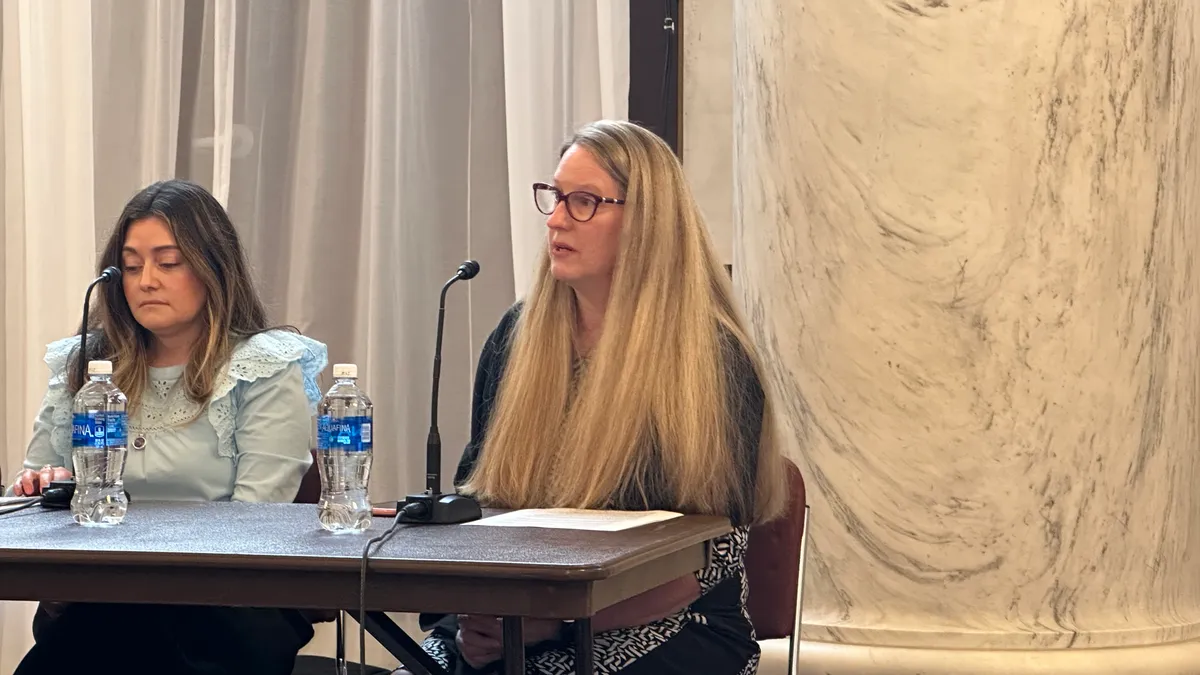WASHINGTON — HR professionals have heard all about the digital skills gap — and have likely experienced it firsthand. But what does the dire need for upskilling have to do with diverse hiring? A lot, the National Skills Coalition’s 2023 summit suggested.
On May 3, NSC hosted a panel discussion with three learning and development professionals: Washington-based Marisol Tapia Hopper of Seattle-King County’s Workforce Development Council, Constance Green of Virginia's Community Colleges System and Illinois-based Robert Guzman of scaleLIT.
While their work is spread across the country, the challenges they face are similar. Their discussions underscored the ways in which the Digital Equity Act — which seeks to make the internet and technology more accessible to people with disabilities, folks in rural areas and low-income talent — and similar legislation have tangible, real-world implications for the future of diversity and inclusion.
“In Washington state, we see digital skills as the connective tissue to upward mobility,” Tapia Hopper said, explaining that a lack of access “disproportionately impacts people of color communities, immigrant refugees and vulnerable populations.”
That vulnerability, Tapia Hopper suggested, is exacerbated by the ever-evolving tech landscape; she name-dropped IBM, whose CEO, Arvind Krishna, recently announced that the tech company is pausing hiring for 7,800 jobs that leadership believes can ultimately be replaced by artificial intelligence. (Notably, IBM has a home base in Seattle, Washington.)
“We really do feel in Virginia that digital skills are a great baseline,” Green, who is a state coordinator for Virginia’s Workforce Innovation and Opportunity Act Adult and Dislocated Worker Programs. She called for increased education at home and in colleges.
From her perspective, not only do the populations she serves need “fundamental skills,” such as Microsoft Suite, she said, but the talent she serves also need to learn how to work through e-learning courses.
Guzman, in turn, pointed to the 10 American Job Centers in Cook County, Illinois, and what he sees as external affairs director at scaleLIT, known formerly as the Chicago Citywide Literacy Coalition.
Referring to himself as a one-stop operator of learning and development, Guzman told a story of some 200 asylum-seekers from Venezuela being dropped off at one of his partner job centers last year.
“It was Halloween; I show up in a Woody outfit — so there’s pictures floating around,” he explained, garnering some laughs. “The first thing I noticed is that some of them were professionals. And they had degrees in their country. And a lot of them didn’t have any digital literacy skills.”
Immediately, Guzman’s goal was to get asylum-seekers acquainted with scaleLIT’s computer labs and resource rooms. “Next thing you know, they’re taking English classes, working with types of partners in the city colleges and community colleges,” he said, adding that they were subsequently able to participate in more learning and development programs.
“It all started with us in the resource room, teaching them how to register [online], and how to reset their username and passwords,” he said.
Historically, job candidates have waited in lines that can last from three to four hours in order to receive tech support; typically, the asks are to help reset login information for job portals or assistance in uploading PDF resumes, required by the state-run Illinois Job Link platform. (Registering with this platform is crucial for residents looking to access lllinois unemployment insurance.)
The battleground for obtaining digital skills — and their benefit to Black, Indigenous and Latinx talent — has a direct intersection with the second-chance hiring movement.
“One of my American Job Centers is less than two miles or a mile and a half from away from one of the biggest Cook County jails — one of the biggest jails in the United States. These people have been there since the ‘80s, the ‘90s and the 2000s. They did their time, and then they walked to our American Job Center because all they knew before they went in there was that it was the unemployment office.
“But now it’s the American Job Center. We’re saying ‘Welcome back! Let’s help you apply for services! You need a job? You need digital literacy skills.’ So we’re ground zero of this digital literacy movement,” Guzman explained.
The experiences of the NSC panel’s labor advocates are just a microcosm of how digital equity is a crucial aspect of diversity, equity and inclusion.























